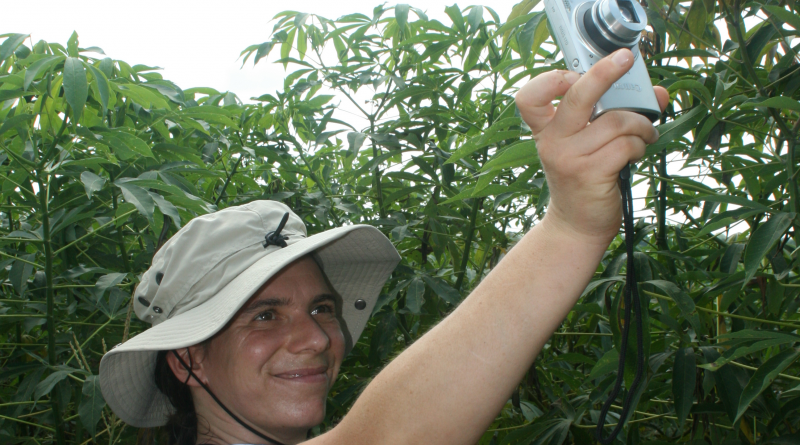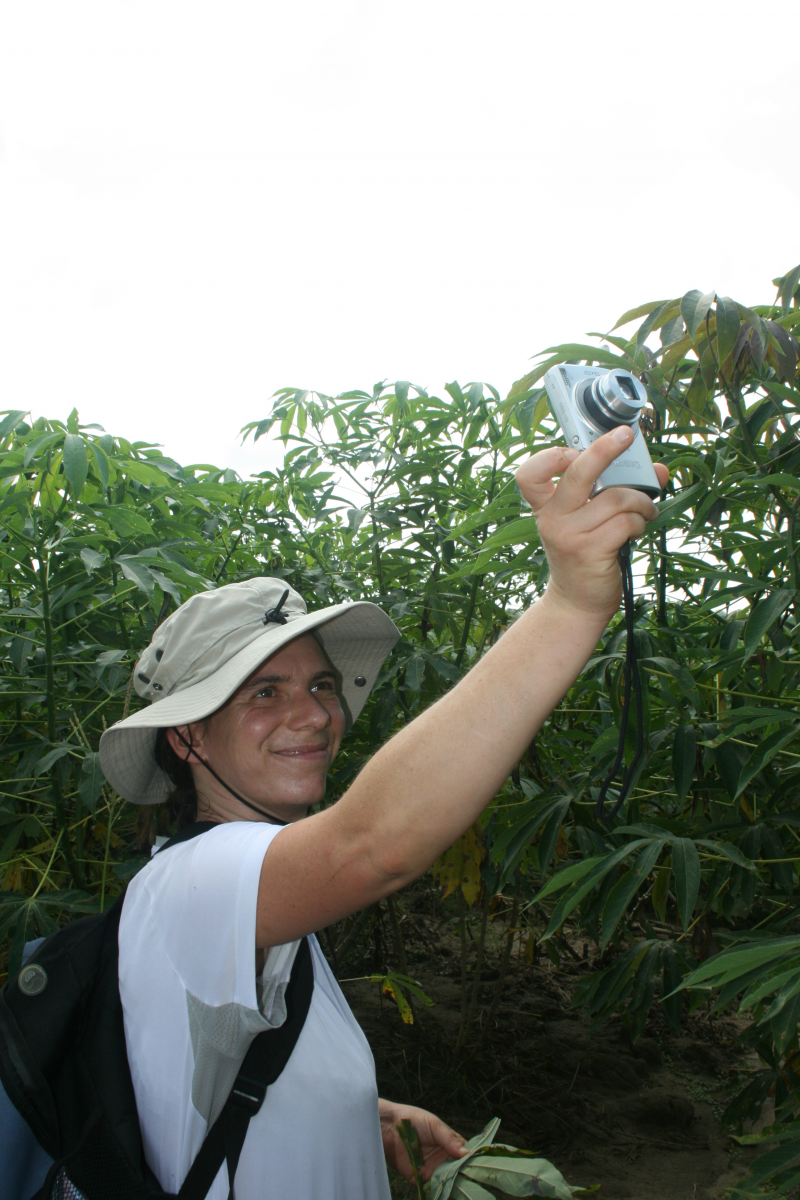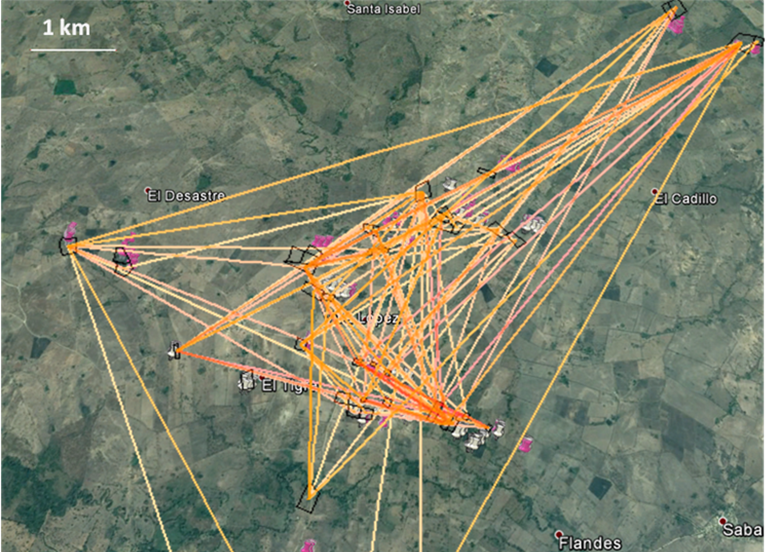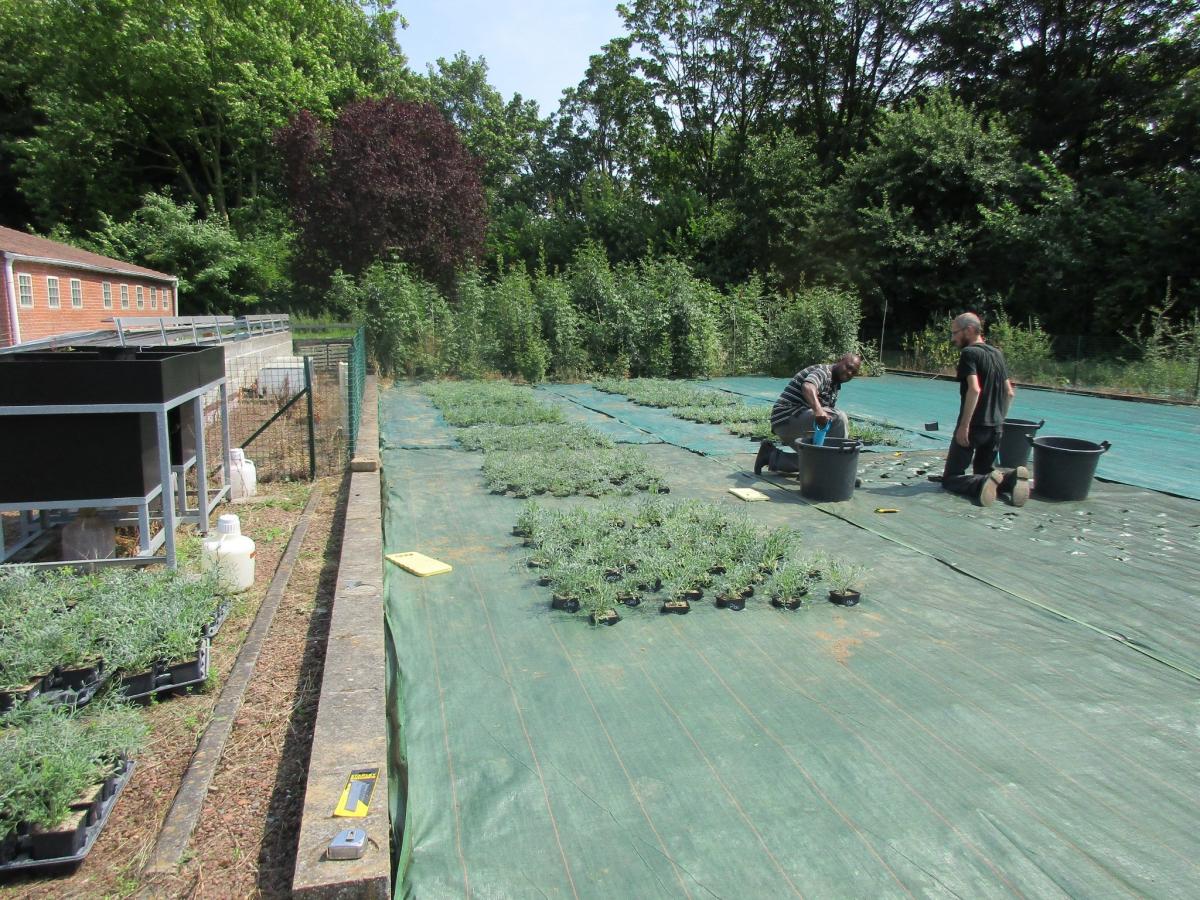
Anne Duputie
Anne Duputie
MCF/Lecturer
Equipe Evo-Eco
Groupe : Écologie et génétique évolutive à diverses échelles
Unité Evo-Eco-Paléo (EEP) – UMR 8198
CNRS / Université de Lille – Sciences et Technologies
Batiment SN2, bureau 104
59655 Villeneuve d’Ascq – FRANCE
Tel : 33 (0)3-20-43-49-91
Mail : Anne.Duputie@univ-lille1.fr
Lien sur une autre page perso :
Research interests:
I am an evolutionary ecologist, interested in how species respond to various types of anthropogenic disturbances.
I am welcoming new students, mainly on these research themes:
1/ What are the ecological consequences of plant domestication, and how do farmers manage the diversity of a cultivated species?
Cassava (manioc) is a clonally propagated crop, cultivated for its tubers but propagated using stem cuttings, and self-propagated via volunteer seedlings. Some questions I am interested in are: How did domestication modify ecological traits under indirect selection? How diverse is the planted material in various agricultural contexts? How do farmers select the planting material they will use in the next cultivation cycle? How do they exchange stem cuttings, and how does that impact the spread of cryptogamic diseases? [Project PAIX with Boris Szurek, Sophie Caillon, Mathieu Thomas, Christian Vernière]

2/ How do species respond to climatic change (and other anthropogenic disturbances)?
To answer this question, I use species distribution models and common garden experiments.
Common garden experiments help understand which ecological traits vary the most along the geographic distribution of plant species, and the genetic structure of plant populations along their distribution range [project Areolaire with Jean-François Arnaud, PhD student Mathilde Latron].
Models help understand whether local adaptation, migration, or phenotypic plasticity contribute more to the individual response of each species to climate or habitat change [project TRECC with Isabelle Chuine, Ophélie Ronce, Alexis Rutschmann]. To calibrate these models, I also investigate the cues necessary to trigger spring events in plants [project PheDhoDo with Virginie Cuvillier].


Keywords: species distribution models, trait evolution, adaptation, climate change, population genetics
Teaching:
Plant biology (L1 & L2)
Ecology (L1 & L3 BOP)
Ecology and evolution (L3 SVT & M1 for future teachers)
Methods in ecology (M2 GEB)
Short CV:
Since Sept 2013 Lecturer at Univ Lille 1, lab EEP
May 12 – Aug 13 Postdoctoral stay at CEFE Montpellier, Mechanistic and statistical modelling of species ranges: phenotypic plasticity, local adaptation and model robustness. With I Chuine and O Ronce (ISEM, Montpellier). Funding French National Research Agency.
Feb 10 – May 12 Postdoctoral stay at UTexas (Austin) & CEFE (Montpellier), Evolution of tree species ranges under climate change. With M Kirkpatrick (UTexas Austin) and I Chuine (CEFE Montpellier). Funding: Marie Curie IOF.
Feb 09 – Jan 10 Postdoctoral stay at UTexas (Austin) Modelling life-history trait evolution on a shifting environmental gradient. With M Kirkpatrick (UTexas Austin). Funding: AXA Research Fund.
2004-2008 PhD, University Montpellier II, with D McKey. From the radiation of Manihot in a biodiversity hotspot to the domestication of cassava.
Some publications:
Saltré F., Duputié A., Gaucherel C. & Chuine I. 2016. How climate, migration ability and habitat fragmentation affect the projected future distribution of European beech. Global Change Biology.
Duputié A., Zimmermann NE, Chuine I. 2014. Where are the wild things? Why we need better species distribution data. Global Ecology and Biogeography, 23: 457-467.
Duputié A., Massol F., Chuine I., Kirkpatrick M., Ronce O. 2012. How do genetic correlations affect species range shifts in a changing climate? Ecology Letters, 15: 251-259.






